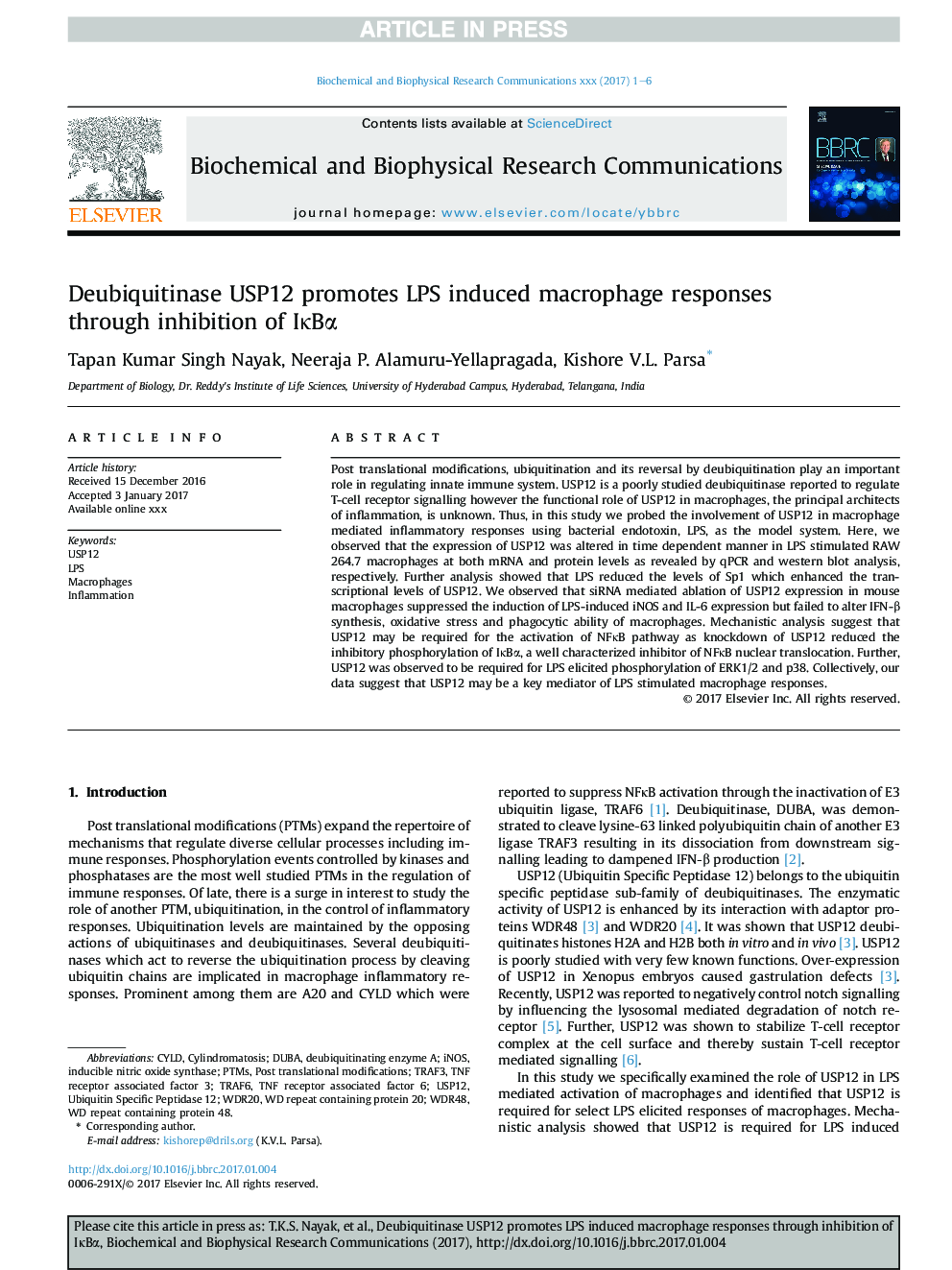| Article ID | Journal | Published Year | Pages | File Type |
|---|---|---|---|---|
| 5505557 | Biochemical and Biophysical Research Communications | 2017 | 6 Pages |
Abstract
Post translational modifications, ubiquitination and its reversal by deubiquitination play an important role in regulating innate immune system. USP12 is a poorly studied deubiquitinase reported to regulate T-cell receptor signalling however the functional role of USP12 in macrophages, the principal architects of inflammation, is unknown. Thus, in this study we probed the involvement of USP12 in macrophage mediated inflammatory responses using bacterial endotoxin, LPS, as the model system. Here, we observed that the expression of USP12 was altered in time dependent manner in LPS stimulated RAW 264.7 macrophages at both mRNA and protein levels as revealed by qPCR and western blot analysis, respectively. Further analysis showed that LPS reduced the levels of Sp1 which enhanced the transcriptional levels of USP12. We observed that siRNA mediated ablation of USP12 expression in mouse macrophages suppressed the induction of LPS-induced iNOS and IL-6 expression but failed to alter IFN-β synthesis, oxidative stress and phagocytic ability of macrophages. Mechanistic analysis suggest that USP12 may be required for the activation of NFκB pathway as knockdown of USP12 reduced the inhibitory phosphorylation of IκBα, a well characterized inhibitor of NFκB nuclear translocation. Further, USP12 was observed to be required for LPS elicited phosphorylation of ERK1/2 and p38. Collectively, our data suggest that USP12 may be a key mediator of LPS stimulated macrophage responses.
Keywords
Related Topics
Life Sciences
Biochemistry, Genetics and Molecular Biology
Biochemistry
Authors
Tapan Kumar Singh Nayak, Neeraja P. Alamuru-Yellapragada, Kishore V.L. Parsa,
